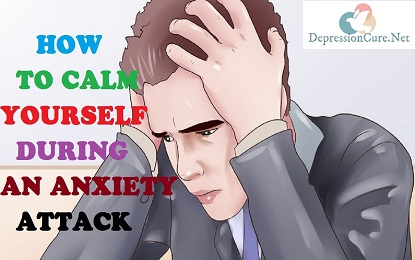Introduction
Excessive sleepiness or hypersomnia is a condition in which a person is so sleepy that he cannot stay awake during the day. People who suffer from hypersomnia problems can sleep anywhere.
For example, they can sleep while working, and even while driving. They may also have other issues related to sleep, such as loss of energy and difficulty in thinking clearly.
People suffering from this problem spend more than 9 hours of sleep in 24 hours. Due to excess sleep, they do not get sleep at night, and they do not wake up again and again at night.?
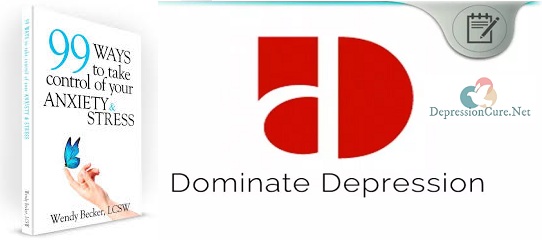
Stimulants are commonly used to treat its symptoms. However, these drugs work more effectively for narcolepsy (a type of sleeping sickness) disease than for the problem of excess sleep. During treatment, it is advised to adopt better hygiene and avoid caffeine (tea-coffee, etc.) or alcohol.
Types of Hypersomnia
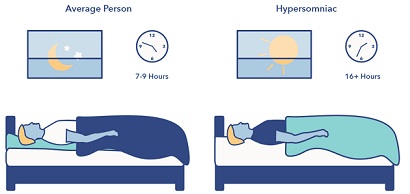
How many types of sleep problems can occur?
Primary hypersomnia can be of the following types:
- Narcolepsy
- Idiopathic hypersomnia
- Klein-Levin syndrome
It has also been noted that primary hypersomnia is often associated with genetic disorders.
Secondary or second hypersomnia is quite prevalent. Sleep problems can also be caused by a variety of other conditions, such as depression, obesity, epilepsy, or multiple sclerosis.
It is a common problem with excessive sleepiness with problems like obstructive airway syndrome, restless leg syndrome, sleep deprivation, etc. Some people are also genetically susceptible to this problem.
Click Here To Read: Sleeping Disorders Reasons and Solutions
Hypersomnia Symptoms
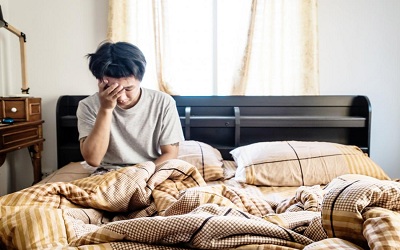
What are the symptoms of excess sleep??
The main symptom of the problem of over-sleeping is frequent fatigue. People suffering from hypersomnia spend the whole day taking sleep naps without relief from drowsiness. They have difficulty waking up even after sleeping for a long time.

Excessive sleep:
Sleeping continuously for ten or more hours at night and taking naps in the day with it. It is not uncommon for hypersomnia patients to spend 16 hours sleeping in 24 hours.
- Too much sleep during the day.
- Difficult to wake up from sleep (even after a long sleep here) even after the alarm, light, and other people try to raise it.
Sleep inertia
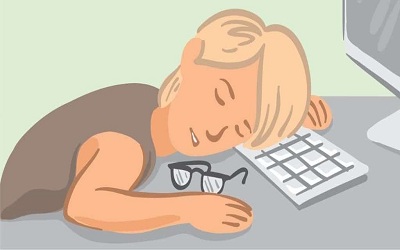
A poor physical condition after waking up, usually with confusion, status confusion, and loss of coordination. It often seems more natural to fall back asleep than to stay awake after waking up from sleep.
Long-term refreshing naps
People with hypersomnia can reduce sleep in sporadic cases. After waking up, sleep problem persists.
Cognitive dysfunction
This includes problems related to forgetting, automatic behavior and difficulty concentrating, etc.
Other symptoms of hypersomnia, which include:
- Energy loss
- Irritability
- Anxiety
- loss of appetite
- Energy incident
- Slow down thinking and speaking
- Difficulty remembering
- Hallucination
- Restlessness
Some patients also lose the ability to work related to family, social, professional, and other systems.
When should the doctor see in hypersomnia?
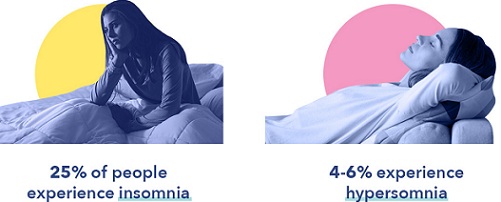
Visit a doctor if you experience the following problems:
- If you fall asleep in a deep sleep repeatedly during the day.
- If the problem of excess sleep is affecting your life.
Click Here To Read: 5 Reasons why sleeping Too Much Can Be Dangerous
Hypersomnia Causes
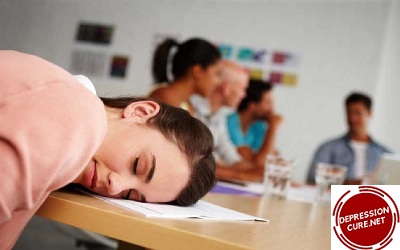
What causes more sleep, and what are its risk factors?
Some possible causes of hypersomnia include the following
- Narcolepsy sleeps disorder (daytime sleepiness) and sleep apnea (feeling of obstruction in breathing during sleep).
- Not getting enough sleep at night (sleep deprivation).
- Excess weight gain.
- Drug or alcohol addiction.
- Head injury or any neurological disease such as multiple sclerosis or Parkinson’s disease.
In some cases, this problem occurs as a result of a physical problem, such as a tumor, head trauma, or central nervous system injury.
Certain types of medications or medicine withdrawal can also cause hypersomnia. On discontinuing or reducing the intake of a medicine, when some mental and physical symptoms are felt, it is called ‘medicine withdrawal or drug withdrawal.’
Some prescription (doctor-prescribed) drugs, such as tranquilizers or antihistamines.
Genetics (hypersomnia of a family member) – Heredity is the cause of hypersomnia in some people. The reason for this is not apparent in others.
Generally, hypersomnia is first identified in adolescence or adulthood. Conditions that promote sleep problems during the day increase the risk of developing hypersomnia. Including:
- Certain types of brain conditions
- Kidney problems
- Sleep apnea, which is left untreated
- Work or job shifts if associated with hypersomnia risk
- People who smoke regularly or drink alcohol may have more sleep problems.
- Certain types of medications that cause drowsiness may also develop hypersomnia-like symptoms.
Prevention of hypersomnia
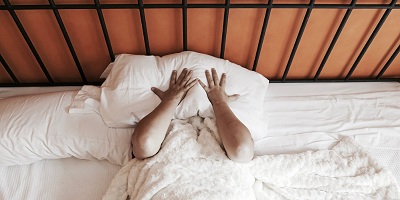
How to prevent oversleeping problems?
It is not possible to prevent excessive sleep due to hypersomnia. You can reduce over-sleep by reducing alcohol intake and creating a peaceful environment for sleep. Also, to reduce this problem, do not take medicines that cause drowsiness, and avoid exercising at night.
Proper sleep hygiene (improved sleep state) is a significant behavioral change that must be implemented. This includes a regular sleeping schedule, an environment that is optimized for good sleep, a comfortable bed and pillow, and protection against caffeine and other stimulants.
Diagnosis of Hypersomnia
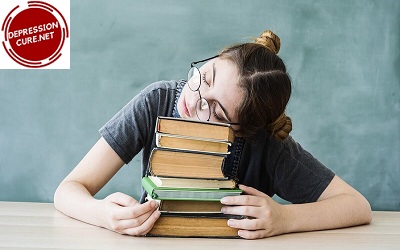
How is the problem of over-sleeping tested?
If you continue to feel sleepy during the day, talk to your doctor. Your doctor may ask you some questions to definitively diagnose the problem of hypersomnia.
During this time, you can be asked some issues related to sleeping habits, how much sleep you get at night, and whether or not you sleep deeply during the day.
The doctor may also ask you about problems related to your emotional stress. If you take any kind of medicine or drugs, etc., the doctor may ask you about this because some types of medications can increase sleep.
Both polysomnogram and multiple sleep latency tests to detect hypersomnia or other sleep disorders can be a much better option.
Click Here To Read: 15 Insomnia Facts
With the help of multiple sleep latency tests, the speed is measured by how long a person enters deep sleep. People suffering from other sleep disorders like hypersomnia or narcolepsy go to sleep very quickly and are considered the best test for detecting sleep disorders. Multiple sleep latency tests indicate any of the above diseases in less than 10 minutes.
The polysomnogram test measures the subject’s brain waves and physical movements during the sleep state. It is also a good option for detecting sleep disorders that cause sleepiness during the day. If nothing unusual is found during this test, you may be asked to come back for a second test to validate the data.
The doctor will examine your symptoms and your previous medical condition to test for hypersomnia. A physical examination can also be done to check your alertness.
Some other tests to diagnose hypersomnia include:
Sleep Diary
A complete record of your sleeping and waking throughout the night, to detect sleep patterns.
Epworth Sleepiness Scale
You rate your sleepiness status to determine the severity of the condition.
Hypersomnia Treatment?

How to treat the problem of excess sleep?
The treatment of hypersomnia is asymptomatic.
By changing behavior, such as working late at night and delaying sleeping, and making some changes in diet, some relief can be provided from this problem. During this time, the patient should stop consuming caffeine and alcohol, etc.
Medications?
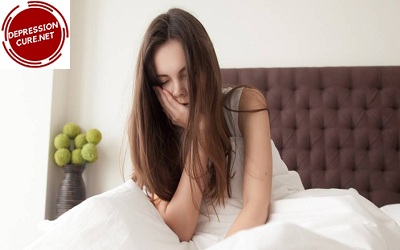
Some stimulant medications may be prescribed for treatment, such as:
- Amphetamine
- Methylphenidate
- Modafinil
Some other medicines that are used to treat hypersomnia:
- Clonidine
- Levodopa
- Bromocriptine
- Antidepressants
- Monoamine oxidase inhibitors
Other alternative therapies, such as:
Treatment of hypersomnia depends primarily on its underlying cause, whether the condition of hypersomnia is primary or secondary.
Sometimes examining at bedtime helps to know the symptoms of excessive sleep. It is considered more appropriate to treat the underlying cause of the symptoms rather than treat its symptoms.
Stimulant drugs like amphetamine are used for this. These drugs can help the patient stay awake all day.
Apart from this, procedures like Behavioral Therapy, Sleep Hygiene, and study can also be included in the treatment plan.
Click Here To Read: Sleep Disorders Symptoms, Types and Home Remedies
If you have been tested for sleep apnea, the doctor sets a treatment plan for you, known as positive airway pressure (CPAP). The CPAP process involves wearing a mask while you sleep.
A machine is fitted with a mask, which allows continuous airflow to the nose. Air pressure in the nostrils helps keep the airways open.
Primary hypersomnia is usually treated with stimulants, such as amphetamine and modafinil. Other treatments may also include antidepressants. In most cases, behavioral changes are also established.
If you are taking some medicines and you are experiencing drowsiness, talk to your doctor about getting them changed. Try to sleep early in the evening to get more sleep at night time.
Sleep hygiene or sleep hygiene is common practice, encouraging almost all people to avoid sleep disturbances. This may include the following methods –
Make a sleep schedule; keep the daily sleeping and waking hours the same, even on vacation days.
If you are taking amphetamine medicines, do not drink caffeinated drinks and alcohol.
Tell others about your situation; you can also complete long treatment if you get love & support from those who are close to you.
Apart from this, your colleague, boss or teacher, etc. should also know about your situation. So that they can help tailor your needs to you.
Do not overstep yourself
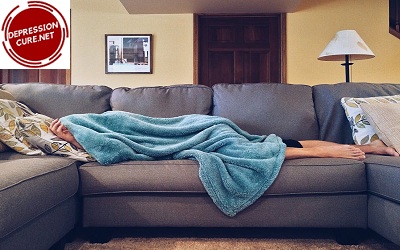
We all should listen to our bodies and sleep. The only difference in people suffering from hypomania is that they are not able to listen to their sleep and body like an average person like they cannot get up from sleep.
Note: Depression Cure does not provide any type of medical advice, diagnosis, or treatment.




